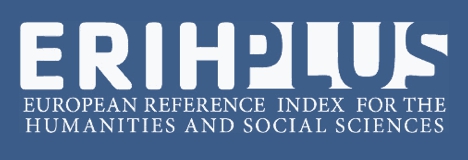The geography teacher and the high school of public schools from Iguatu (Ceará): teaching work and education
Abstract
The research aims to analyze the teaching work and education of high school Geography teachers of 07 public schools of the municipality of Iguatu (Ceará). The research was structured in 03 stages by means of interviews with the regional education coordinator (Crede 16) and the coordinators of the Human Sciences area and all the geography teachers from these schools. The profile identified allows us to conclude a positive initial formation situation, since only 01 teacher (a) has no training in the area, but with the predominance of fragile working relationships marked by temporary teachers (64%), teaching other basic core disciplines (Sociology and Philosophy) and diversified (NTTPS, Education for Citizenship and World of Work) of the curriculum, as well as working in other schools and cities in the region as a complement to workload and family income.
References
CALLAI, H. C. Do ensinar Geografia ao produzir o pensamento geográfico. In: REGO, Nelson et al. (orgs.). Um pouco do mundo cabe nas mãos. Porto Alegre: UFRGS, 2003. p. 57-74.
CAVALCANTI, L. S. Geografia e práticas de ensino. Goiânia: Alternativa 2002.
CEARÁ. Secretaria de Educação do Estado do Ceará – Seduc. Sistema permanente de avaliação da Educação Básica do Ceará. Disponível em:
DAMACENO FILHO, A. R.; GÓES, L. M; ROCHA, L. B. Distorção entre a formação e atuação do licenciado em Geografia nas escolas públicas de Itabuna (BA). Revista Geografia, Londrina, v. 20, n. 1, p. 129-145, jan-abr/2011.
HOLANDA, V. C. C.; AMORA, Z. B. Cidades médias do Ceará, Estado do Nordeste do Brasil, e suas dinâmicas contemporâneas. Revista Geográfica de América Central: revista da Escuela de Ciencias Geográficas da Universidad Nacional, Costa Rica, v. 2, p. 1-13, 2011.
______; SOUZA, M. R. B. Transformações territoriais das cidades médias de Sobral e Iguatu–CE. Revista Homem, Espaço e Tempo, Sobral, p. 31-43, março/2010.
INSTITUTO BRASILEIRO DE GEOGRAFIA E ESTATÍSTICA – IBGE. Regiões de influência das cidades – 2007. Rio de Janeiro: IBGE, 2008.
INSTITUTO DE PESQUISA E ESTRATÉGIA ECONÔMICA DO CEARÁ – IPECE. As regiões de planejamento do Estado do Ceará. Fortaleza, IPECE Textos para discussão. nº 111 – nov./ 2015. Disponível em:
JUCÁ NETO, C. R. Primórdios da rede urbana cearense. Mercator: revista de Geografia da UFC, Fortaleza, ano 08, n° 16, 2009.
LIMA, M. G. A pesquisa acadêmica e sua contribuição para a formação do professor de Geografia. In: PONTUSCHKA, N. N.; OLIVEIRA, A. U. (orgs.). Geografia em perspectiva. 3. ed. São Paulo: Contexto, 2006. p. 119-124.
LOURO, G. L. Gênero, sexualidade e educação: Uma perspectiva pós-estruturalista. Petrópolis: Vozes, 1997.
MARCONI, M. A.; LAKATOS, E. M. Fundamentos de metodologia científica. 7. ed. São Paulo: Atlas, 2010.
MATHIAS, H. J. A.; SANTOS, W. T. P. S. O perfil do professor de Geografia dos colégios estaduais da cidade de Irati – PR. Olhar de Professor, Ponta Grossa, 13 (1): p. 89-104, 2010.
MINISTÉRIO DA EDUCAÇÃO – MEC. MEC lança Política Nacional de Formação de Professores com residência pedagógica. Brasília, 18 out. 2017. Disponível em: <
http://portal.mec.gov.br/ultimas-noticias/211-218175739/55921-mec-lanca-politica-nacional-de-formacao-de-professores-com-80-mil-vagas-para-residencia-pedagogica-em-2018>. Acesso em: 08 abr. 2018.
SALDAÑA, P. Quase 50% dos professores não têm formação na matéria que ensina. Folha de São Paulo, São Paulo, 23 jan., 2017. Seção Educação. Disponível em:

This work is licensed under a Creative Commons Attribution-NonCommercial 4.0 International License.
Policy Proposal for Free Access Journals
Authors who publish in this journal agree to the following terms:
a. Authors retain the copyright and grant the journal the right of first publication, with the work simultaneously licensed under the Creative Commons Attribution License which allows the sharing of the work with acknowledgment of the authorship of the work and initial publication in this journal.
b. Authors are authorized to take additional contracts separately, for non-exclusive distribution of the version of the work published in this journal (eg publish in institutional repository or as a book chapter), with acknowledgment of authorship and initial publication in this journal.
c. Authors are allowed and encouraged to publish and distribute their work online (eg in institutional repositories or on their personal page) at any point before or during the editorial process, as this can generate productive changes, as well as increase the impact and The citation of published work (See The Effect of Free Access).





















